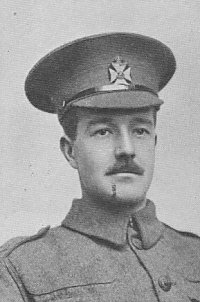
EDWARD WILLIAM HATCHER
The father of Edward William was also known as Edward William Hatcher b. 1843) and he arrived in Portsmouth from his previous home in Shaftesbury, Dorset around 1873. The motivation for the move was probably the pursuit of employment at the Dockyard but initially he may have had to use his skills as a carpenter outside the Dockyard walls before gaining employment as a Ship's Carpenter in the 1880s.
With Edward sen. on his transfer to Portsmouth were his wife Emily (b. 1851 in Shaftesbury) and his daughter Emily (b. 1872). In 1881 the family were recorded in the census as living at 20 Clifton Street, off Arundel Street and then in 1891 at 72 Stamford Street, off Fratton Road. By the time of the latter census the family had expanded by the addition of three more children, Arthur (b. 1874), Ellen (b. 1879) and Edward William (b. 1888).

In 1899 Edward William began a short attendance at the Higher Grade School in Victoria Road North but left before his 14th birthday in 1901. After leaving school he served an apprenticeship as a Pupil Teacher in one of the Portsmouth schools and in due course proceeded to Winchester Training College, where he became a member of the College Company of the Hampshire Volunteer Rifles. At the end of two years' residence he gained the Teacher's Certificate with additional qualifications. He was an ardent swimmer and the holder of the Royal Humane Society's Life Saving Certificate. In August, 1908, upon leaving Winchester, he was appointed an Assistant Master in a school at Pimlico, London.
When the Great War broke out he was on holiday in Switzerland, and in common with others had some difficulty in getting home. In November, 1914, he responded to the call for men by enlisting as a Private in the 9th (County of London) Battalion, the London Regiment (Queen Victoria's Rifles). Following a short period of training at Crowborough, he was drafted to France at the end of March, 1915. Within a month he saw desperate fighting at Hill 60, at St. Julien, and in the second Battle of Ypres. Early in the next year he became a lance-corporal.
On 1st July, 1916, the great offensive began along the Somme front. The 9th Londons attacked in the early morning on the right of Gommecourt Wood, north of Albert, and took three lines of German trenches, which they held for several hours. Then the enemy put up a heavy barrage behind our men to stop reinforcements from coming up, and at the same time made a vigorous counter-attack. While bombs lasted a stout resistance was offered, but in the subsequent retirement very heavy casualties were suffered, not a hundred returning of the three companies of the 9th Londons that set out in the morning.
Corporal Hatcher was among the many who were reported missing. Later, a comrade from a camp of British war prisoners reported that he had seen him, severely wounded in the back, lying quite still in an exposed position where it was quite impossible to render any assistance. No more definite information has ever reached his relatives, so that it is concluded he must have succumbed that day to his wounds.
A survivor makes mention of Mr. Hatcher's fearless behaviour and of the esteem in which he was held.
Further Information
The photograph above is taken from a memorial booklet published by Southern Grammar School from which extracts also appear above.
The Commonwealth War Graves Commission (CWGC) website lists Lance Corporal Edward William Hatcher, (3442), London Regiment (Queen Victoria's Rifles), date of death, 01/07/1916, remembered on the Thiepval Memorial (Pier and Face 9.C.).
Edward Hatcher is remembered on the Southern Grammar School WW1 Memorial and on the Cenotaph. He is not listed in the 'National Roll of the Great War'.